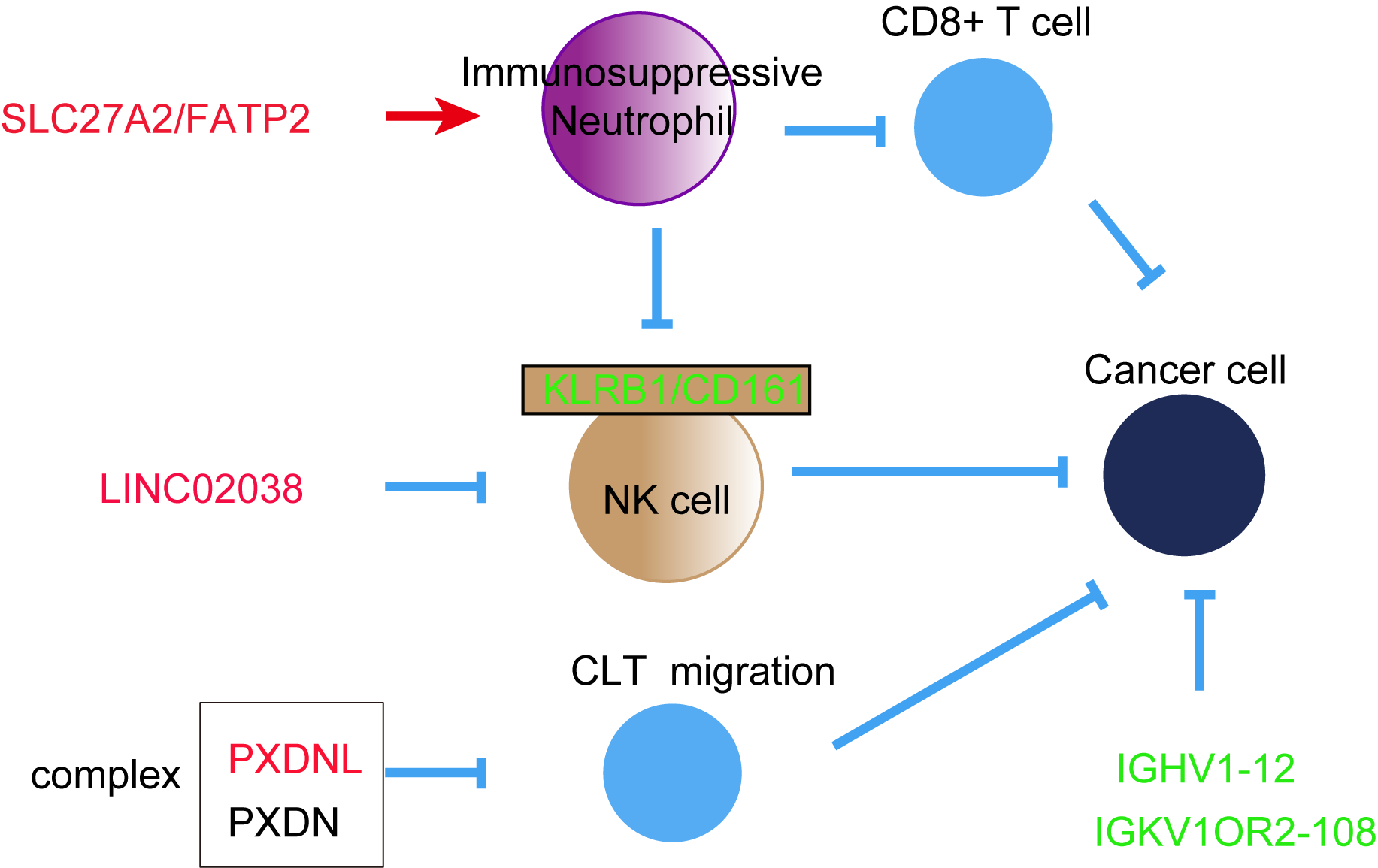TMERPSmap
Identifying tumour microenvironment-related signature (TMERS) that correlates with prognosis and immunotherapy response in breast cancer.
Abstract
Tumor microenvironment (TME) plays important roles in prognosis and immune evasion. However, the relationship between TME-related genes and clinical prognosis, immune cell infiltration, and immunotherapy response in breast cancer (BRCA) remains unclear. This study described the TME pattern to construct a TME-related prognosis signature (TMERS), including risk factors PXDNL, LINC02038 and protective factors SLC27A2, KLRB1, IGHV1-12 and IGKV1OR2-108, as an independent prognostic factor for BRCA. We found that the prognosis signature was negatively correlated with the survival time of BRCA patients, infiltration of immune cells and the expression of immune checkpoints, while positively correlated with tumor mutation burden and adverse treatment effects of immunotherapy. Upregulation of PXDNL and LINC02038 and downregulation of SLC27A2, KLRB1, IGHV1-12 and IGKV1OR2-108 in high-risk score group synergistically contribute to immunosuppressive microenvironment which characterized by immunosuppressive neutrophils, impaired cytotoxic T lymphocytes migration and natural killer cell cytotoxicity. In summary, we identified a TME-related prognostic signature in BRCA, which was connected with immune cell infiltration, immune checkpoints, immunotherapy response and could be developed for immunotherapy targets. A website for interactive visualization is called TMERSmap: https://tmerpsmap.bio-database.com.
